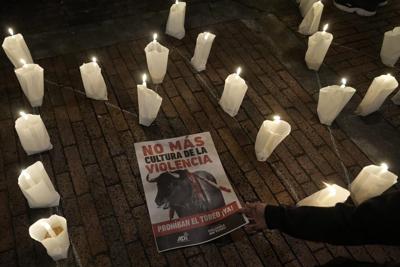The United Nations General Assembly has decisively voted in support of an enhanced Palestinian membership within the organization.
The recent decision by the UN General Assembly to support increased Palestinian membership in the United Nations could have significant implications. The resolution, backed by countries including Ireland, acknowledges Palestine’s eligibility for full UN membership and urges the Security Council to revisit the issue, following a previous veto by the US. This development highlights the growing international support for Palestinian recognition and could lead to important changes in the region.
The current vote holds significant implications, with divergent perspectives on its potential outcomes. Some view it as a crucial initial move towards enduring peace in the Middle East, while others fear it may inadvertently reward terrorism, potentially prompting the United States, the largest contributor to the United Nations, to withdraw its financial support. The decision made today could shape the future trajectory of international relations and global peace efforts in the region.
Recognizing a country as a sovereign state involves complex considerations that go beyond just geographic boundaries and government structures. The Montevideo Convention, signed in 1933, outlines four key criteria for statehood: a permanent population, a government, defined borders, and the ability to engage in foreign relations. However, not all recognized states strictly adhere to these guidelines. For instance, countries like Libya, which may have multiple governing bodies, challenge the conventional notions of statehood.
As of the end of 1988, approximately half of the United Nations member states had acknowledged Palestine. Fast forward to the present day, and that number has risen to 140 nations. On May 28th, Ireland, Norway, and Spain are set to formally join this group, a significant development given that most other Western countries do not officially recognize Palestine. Countries like the United States, United Kingdom, France, and Germany advocate for a two-state solution in the conflict between Israel and Palestine, asserting that they would only acknowledge a Palestinian state if endorsed by both parties. However, Israel opposes any independent actions taken by Palestinians without mutual agreement and Binyamin Netanyahu, the Prime Minister of Israel, has consistently rejected the idea of a two-state solution.
In diplomatic circles, there is a discussion about whether the current situation could establish a precedent for other similar cases, like Kosovo and Taiwan. Meanwhile, the United States is facing a significant issue due to a law from the 1990s that prohibits the allocation of funds to the United Nations if Palestine is granted equal status as member states. Amendments have been made to clarify that Palestinians will not be able to participate in General Assembly voting or propose candidacies for UN organizations, including the Security Council.
The admission of a new member state into the United Nations is subject to the approval of both the Security Council and the General Assembly. Should the Palestinian Authority’s application successfully navigate the Security Council, it will proceed to the General Assembly, where a two-thirds majority is required for approval.
The likelihood of the application’s success appears more favorable in the General Assembly than in the Security Council. This is evident from the fact that 139 nations, representing a substantial majority of the General Assembly, already formally recognize Palestine as a sovereign state. This widespread recognition could potentially play a pivotal role in securing approval from the General Assembly when the time comes for a vote on the matter.
Ireland has emerged as a prominent advocate for Palestinian membership, particularly within the European Union. The recent vote showcased overwhelming support for this stance, with 143 countries voting in favor, nine against, and 25 abstentions.
Such resounding numbers not only signal a clear message but also have the potential to mobilize international pressure for a constructive political resolution. Ireland’s proactive engagement in drumming up backing for Palestinian aspirations reflects its commitment to promoting peace and justice on the global stage.
Even if this proposal falls short of full membership, it offers Palestinian representatives the opportunity to occupy seats in alphabetical order on the General Assembly floor, a significant shift from their current placement at the rear of the hall. This adjustment grants them the ability to co-sponsor proposals, engage in international conferences, and partake in meetings. As highlighted by Adil Haque, a law professor at Rutgers University in New Jersey, this development will empower Palestinians to voice their concerns and influence discussions on a variety of topics.
The necessity of establishing a Palestinian state according to the borders set in 1967. It also urges the UN Security Council to review their decision regarding Palestine’s membership. If this proposal were to be approved, it would highlight the United States’ isolation on this issue. Any potential decision by President Biden to cut funding to the UN in response would only serve to diminish the country’s international standing even further.
The Palestinian quest for complete U.N. membership emerges in the aftermath of Israel’s prolonged offensive in Gaza and its unlawful expansion of settlements in the West Bank. The U.N. has consistently supported the concept of two states coexisting peacefully with secure boundaries. Palestinians aspire to establish their state in the West Bank, East Jerusalem, and Gaza, a move that is opposed by Israel. This ongoing conflict underscores the complexities and challenges hindering a peaceful resolution in the region.
For Palestinians, the recognition holds both symbolic and practical significance, offering avenues for representation and diplomacy. Symbolically, recognition acknowledges the existence and legitimacy of Palestine as a state, paving the way for the establishment of embassies in supportive nations. However, the tangible benefits and freedoms of statehood remain elusive until Israel acknowledges Palestine as an equal partner.
The hurdles to achieving full statehood are evident in the stalled peace talks, with the last direct negotiations collapsing in 2014. The current political climate casts doubts on the feasibility of reinitiating these crucial dialogues. Nevertheless, the necessity of such discussions cannot be overstated, as they represent a vital step towards lasting peace and recognition for the people of Palestine.


 Many wildlife experts tell bear hunters to consider all bear meat infected.
Many wildlife experts tell bear hunters to consider all bear meat infected. 








